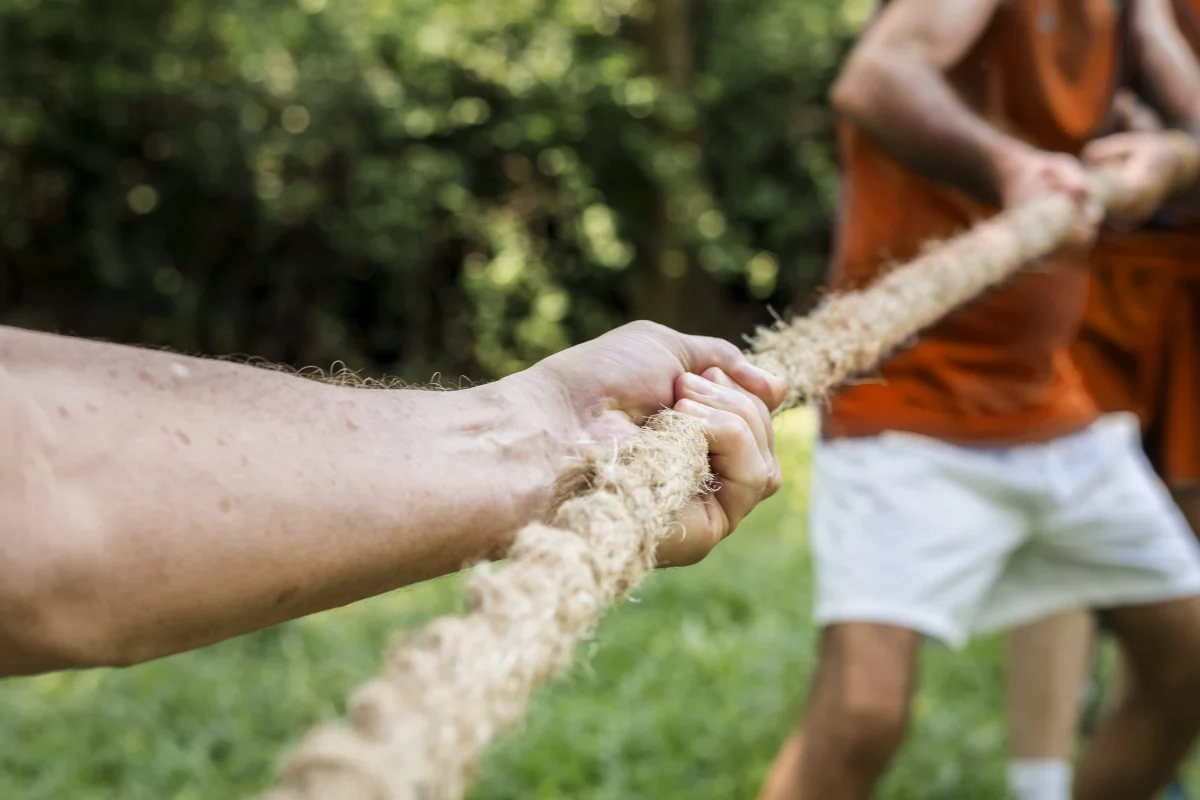Tips from our colleagues on how to cope with stress at work
We asked our colleagues at msg life Slovakia which situations at work are the most challenging for them, how they cope with stress and what helps them to prevent it. Workload causes stress, which can affect our mood or even our health. There is no doubt that work-life balance is an important basis for a sense of fulfilment and satisfaction. We asked our colleagues at msg life Slovakia which situations at work are the most challenging for them, how they cope with stress and what helps them to prevent it.

In the article you will learn:
How do you perceive the pandemic and home office period? Was it too stressful for you or relatively calm?
Jaro: “I spent the home office period mostly at work, so apart from the loneliness in the workplace and the difficulty in communicating with colleagues, nothing has changed. Of course, the various restrictions (cancelled cultural and sporting events) had a negative impact on me.”
Lucka: “At the beginning, when we didn’t know what exactly was waiting for us, everything was new and unknown. I had both of my kids homeschooled online as well. It took us a while to get into a routine that was both functional and to everyone’s liking. After some time, we all got along and enjoyed the time we spent together at home after our daily chores. And although I consider this period to be quite difficult, in hindsight I also remember it in a good way – we became closer and we were intensely together as a family. But, of course, after all the restrictions were over, I was looking forward to going back to work, to the team of my colleagues. The children also enjoyed seeing their schoolmates.”
Michal: “I did experience a bit of stress during that period, but it had nothing to do with the pandemic. I was just starting in a new position and had my head full of new tasks. Thanks to the home office, I’ve cut out almost 3 hours of travelling a day, which I invested mainly in sleep and time with my family, so I think the pandemic has helped me with my stress management. At the moment I alternate between home office and office work, which is absolutely optimal for me. This way I get both – a good night’s sleep and a chance to spend time with my dear colleagues.”
Veronika: “I perceive the period of the pandemic negatively, I was very limited by the restrictions, but one tries to adapt over time. This was also true with the home office, if you don’t know why you can’t connect or something doesn’t work, stress comes right away. But at this point I’m feeling quite calmer about the whole situation and trying to think positively, which helps a lot. :)”
Dominika: “At the beginning of the pandemic I returned to my hometown – Trencin. Since I have been living in Bratislava for 5 years now, I was very excited about the opportunity to spend more time with my parents and loved ones. This period was very peaceful for me. The only negative was the long hours spent on the computer due to online learning and home office.”
Lukas: “The pandemic period was not very stressful for me. Of course, after some time I felt a lack of social contact and cultural activities. Many of my favourite activities had to be interrupted. I spent my free time reading books, building family relationships and other important things that sometimes don’t get enough time in the ‘normal course’ of life.”
How often do you experience stress during the working day?
Jaro: “I deal with stress (especially at work) almost every day, but of course there are also calmer days.”
Lucka: “It depends – my work is rather spasmodic. Sometimes the days are freer, when I can catch up with my regular duties and old stuff, sometimes it’s just the opposite and I don’t stop from morning until the end of the working hours.”
Michal: “I experience real stress only very rarely.”
Veronika: “There are days when I don’t feel stress, but there are also days when I am stressed all the time. If I plan my tasks wisely, the stress goes away and the day goes better. At the same time, my work requires communication with the outside, so I don’t feel the stress of missing social contacts.”
Dominika: “I try to stress as little as possible. Unnecessary stress will not solve anything faster, quite the opposite. At least that’s been my experience.”
Lukas: “It’s very diverse. Since I work on multiple projects at the same time, I find the most stressful times to be when I accumulate high priority tasks on multiple projects. That’s when I often find myself in a time crunch. These are mostly just a few days, but they are extremely demanding. In general, however, I can say that apart from the aforementioned stress related to the lack of time, I do not feel ‘captive to stress’.”

What situations are the most stressful for you?
Jaro: “Switching between the different problems that some German colleagues approach me with. Most of the time it’s about solving urgent production problems and it always takes a while to switch from the current problem to another one. Everyone expects problems to be solved immediately, but that is not always possible!”
Lucka: “Since I’ve been in msg life for a few years, I dare to say that I have already learned and mastered many things. However, when a lot of responsibilities pile up that are demanding on thinking and time, that’s when I find myself going home with a full head of thoughts.”
Michal: “The worst situations for me are when the deadline is approaching and suddenly there is some unforeseen problem that at first glance will not be easy to solve.”
Veronika: “The most stressful situations for me are when I have a scheduled meeting and I’m late or I have a problem with the connection. I’m trying to be conscientious, and that’s very stressful for me.”
Dominika: “I feel less comfortable with more time-consuming tasks. I don’t like to do things rashly and at the last minute.”
Lukas: “The worst thing for me is the lack of time due to the accumulation of several important tasks on different projects.”
How do you cope with stress? Do you use employee benefits (gym, massages, table football, relaxation zone, etc.) to handle stress?
Jaro: “Running helps me to clear my head. However, I really like to go to our company gym to work out.”
Lucka: “About a year ago, I started exercising intensively every morning and I really appreciate it – it helps me clear my head before coming to work.”
Michal: “My experience is that “everything has a solution” – and that helps me a lot. I try to do everything I can to get rid of the stressful situation as soon as possible. Sometimes it is enough to stay a little longer at work, sometimes to ask for help from colleagues, and sometimes nothing helps. If it’s clear that the outcome can’t be salvaged, I’m relieved to talk to someone about it. It’s also nice to be able to see what I can do differently next time so that the same situation doesn’t happen again.”
Veronika: “I try to deal with stressful situations with positive thinking. To combat stress, of course, I use employee benefits, namely massages. They give me incredible energy and especially my back will thank me in the future.”
Dominika: “I try to do sports regularly in our company gym, I also go for massages. It helps me to be in touch with close friends who I can confide in with my problems and worries.”
Lukas: “I cope with stress by trying to redirect my thoughts and put work out of my head for a certain, inevitable period of time. I usually use the relaxation zone or the gym. When I work from home, I usually run out in the front garden or sit at the piano and play something.”
Do you have any proven tips on how to prevent stress?
Jaro: “I don’t have a guaranteed tip, but if anyone has one, please share it. Most often, however, I chase away stress with sport.”
Lucka: “Work-life balance. We go out with our children very often to the countryside, to various huts and trips, and we also meet friends who have children the same age as us – this always gives us positive energy.”
Michal: “It’s probably very individual. I think it’s important to realise that failure is also a part of life. Some people take it as an opportunity to move on and do things better. It is also important to maintain your mental well-being. Personally, the best way to clear my head is to run in the woods.”
Veronika: “Definitely, I find going to the fitness centre, snowboarding and especially swimming very helpful. During these activities, I am able to switch off perfectly and not think about anything. There is an ironic Slovak saying: ‘sport leads to permanent disability’. I cannot agree. Sport is so important to me, that my motto is ‘sport leads to joy’.”
Dominika: “Do not take things too seriously.”
Lukas: “You just have to remember that as long as it’s not about life, you don’t need to overdo it and stress yourself unnecessarily when something doesn’t go 100%. Of course, it’s important to try to do your best, but it’s really not worth spoiling your whole working week or weekend with stress.”

We hope our colleagues’ tips on how to cope with stress at work will help you too. Want to know more about us and our work? Read about online interviews at msg life Slovakia. We are always looking for new colleagues!
